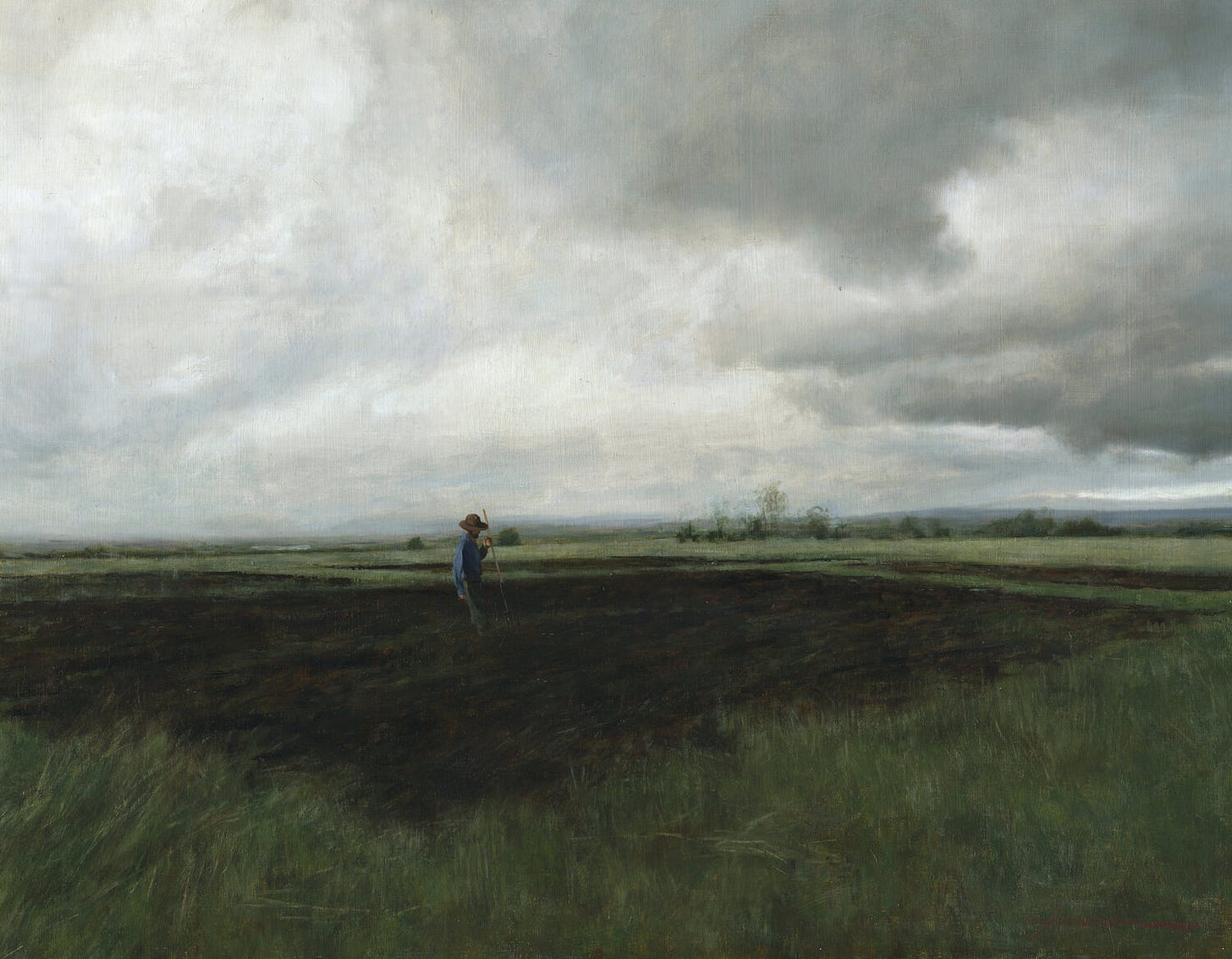As a child grows up in an industrialized society, his neural pathways are shaped by that reality. The same is true for a child raised in primitive conditions. Granted, every child is born with a tabula rasa—an empty cup before the world's spigot of experiences and hand-me-downs. However, this does not negate the epigenetic facts and environmental influences that shape development.
Europe could not escape its hyper-industrial state, and the revival of mass instinct became its revolution as the unconscious attempted to compensate for the loss of a natural existence—one now wholly dependent on government and labor. Yet, Germany's solution to this problem was merely another fallacy. The unconscious revolt became a "return to roots," an invocation of Volk identity, with "blood, soil, and heritage." Though not the sole cause, individual powerlessness in a hyper-industrial environment helped agitate an already festering wound. In this story, the archetypal warrior—the soldier, acts on behalf of the Father—the Führer, while the perceived enemy absorbs the blame for all that is wrong in the world. The story ended as it did. The question now is not whether America will follow the same path but how it will grapple with its own unconscious reckoning as it teeters on the precipice of an unconscious revolt of a comparable magnitude.
This discontent is evident in the masses of children unknowingly adapted genetically and psychologically to a high-speed world. While some parents remain unbothered, others are increasingly concerned about the long-term impact of urban life and hyper-industrialization on their offspring. Meanwhile, the relentless rent-to-live lifestyle continues to fuel resentment among the coming generations.
However, generational frustration is nothing new. The nation has long cycled through periods of psychological disintegration and reintegration, though the means of recovery have changed. As for early America, these cycles played out on a grand scale, yet the country never collectively blamed a singular enemy for its identity crisis. Unlike Germany, whose turmoil turned inward, America's fragmentation was outward-facing, with westward expansion serving as the reintegration mechanism. America had "room" to suffer and evolve, so to speak, both psychologically and physically. In contrast, Germany's neurosis reached a boiling point, seeking reintegration through a reactionary revival of a primordial past. America, by nature, has always been the adaptive younger brother forged under flames; its history is shaped more by renewal than by collapse.
Modern American society lacks the stimulant for an unconscious upheaval of the same temper as those in the past, partly due to its hyper-individualism and the absence of a unifying national consciousness. It also lacks the physical capacity to “act out” and reimagine a collective identity.
Ignoring the virtual realm when assessing America’s psychological landscape would be shortsighted. The new digital frontier has supplanted the old, offering the illusion of expansion, identity, and action. Yet rather than forging cohesion, this simulated frontier has only deepened the fragmentation of the nation’s collective psyche faster than even war could. The fleeting waves of outrage breaking through social media are symptomatic of America’s underlying neurosis. One can also observe it unfold in universities, where the academic youth stage their micro-revolts, fighting on ideological battlegrounds, flying the banners of creed and allegiance to the most unworthy causes. Still, it’s a ground most ripe for conversion with a delusion of enlightenment and progress. Technology and industrialization have only amplified individual struggles with neuroses, yet they are paraded as a “community,” much like a church or an echo of communism. Ironically, they deepen isolation, trapping people in recursive psychological loops and identity instability.
As a social being, it is preferable to have connections to the community—so long as they are immediate and founded upon similar values. As Carl Jung stated in Religion as the Counterbalance to Mass-Mindedness, “The value of a community depends on the spiritual and moral stature of the individuals composing it.” (C. G. Jung, Collected Works, Civilization in Transition, Vol. 10, 2nd ed., §516). A college campus comprising a multitude of diverse individuals, culturally and morally—while some are still in their adolescence—is a far cry from the traditional idea of community. The same can be said for virtual gatherings. In all instances, the individual is swept away from himself and into the collective rally of what “ought” to be or not be in meager attempts to “change society” while he himself remains unchanged.
Despite America’s differences, internal conflicts, and the collective sigh of indifference towards its position, it lacks the catalyst for transformation. Thanks to its vastness, America does not face war, economic collapse, or ideological tumult in a concentrated way, as it is scattered and one may not feel the effects as acutely as the next. Academic protests, attacks, strikes, and internet battles function as psychological pressure valves for the nation. However, they do not lead to systemic action nor could they.
On the other hand, those appealing to a temporary godhead—hoping for intervention or a hammer-blow solution—are merely drifting along the river of reliance, expecting an external force to correct reality in their place. Stagnation itself becomes a crisis, and it is reflected in a nation as much as it is in the individual. What becomes the next frontier when the solipsism of technology and hyper-industrialism has eroded neighborly altruism, leaving the youth burnt out on its distraction?
Perhaps therein lies the Final Frontier—an internal, individual search amid ideological fatigue, whether in the form of spirituality, meaning, or integration.





